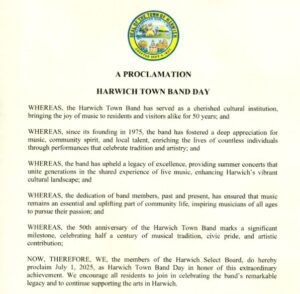 HYANNIS – A 38 percent drop in heart attacks among older Americans over the past 20 years shows “remarkable and progressive improvement,” according to a new study.
HYANNIS – A 38 percent drop in heart attacks among older Americans over the past 20 years shows “remarkable and progressive improvement,” according to a new study.
Elissa Thompson, MD, a cardiologist with Cape Cod Healthcare Cardiovascular Center and medical director of Healthy Parks, Healthy People, says the results are very good, but we can do better. She won’t be satisfied until more of us are taking primary preventive measures, such as healthy lifestyle changes.
A large-scale analysis of more than 4.3 million Medicare recipients’ records across 5,680 hospitals in the U.S. found that, over a 20-year period:
• The number of people hospitalized for heart attacks dropped by 38 percent.
• The death rate within 30 days of a heart attack fell by 34 percent – to an historic low of 12 percent.
• The number of people who had to be readmitted within 30 days of a heart attack dropped from 21 percent to 15.3 percent.
• The number of people who had subsequent heart attacks in the following year dropped from 7.1 percent to 5.1 percent.
The study, published March 15, 2019, in JAMA Network Open, used data from 1995 to 2014 from individuals who were 65 and older and covered by fee-for-service Medicare.
“I think the study is great and so are the results,” Dr. Thompson said. “This study shows nicely that if we can apply scientific knowledge appropriately and effectively into the general population, we can have better outcomes and protect people’s lives.”
What We’re Doing Right
Between 1995 and 2014 the rate of 30-day inpatient heart catheterizations increased from 44.2 percent to 59.9 percent, and the rate of inpatient percutaneous coronary interventions (PCIs, the non-surgical procedure used to treat narrow or blocked coronary arteries) increased from 18.8 percent to 43.3 percent, according to the study.
Dr. Thompson said this bolsters what we already know about the effectiveness of our procedures and the combinations of medicines we use.
“The study shows that if we can rapidly address a heart attack and get people into the catherization lab as soon as possible, their outcomes are going to be better,” she said.
“I was very, very encouraged because this study shows that our outcomes are better for secondary prevention. In other words, if you had a heart attack and were treated between 1995 and 2014, your outcomes are better.
Dr. Thompson said she would like to see improvements in primary prevention, so the number of patients having heart attacks would decrease even more.
What We Can Do Better
A joint study issued a few days after this study, on March 17, by the American College of Cardiology and the American Heart Association was even more revelatory, Dr. Thompson said. The 2019 Guidelines on the Primary Prevention of Cardiovascular Disease were issued, telling people how to prevent cardiovascular disease by adopting heart-healthy habits, which she called “really interesting and fascinating.”
The joint study showed that more than 80 percent of all cardiovascular events are preventable through lifestyle changes.
“That excites me,” she said. “If we can make lifestyle changes and control risk factors, we can prevent heart attacks. That should excite everyone.”
Specifically, the first and second things the high-level report recommended were diet and exercise.
“I think it’s really cool to see diet and exercise as the one-two punches; the fundamental things that we need to be doing to prevent cardiovascular events,” Dr. Thompson said. “I think this study got lost in the media. Its stand on aspirin got the headlines, and that was frequently misinterpreted by the lay press.”
Both studies, she said, show that in heart care, access equates to better care and better outcomes.
“And we have everything in place at Cape Cod Healthcare to help people stay healthy,” Dr. Thompson said. “There was a lot of foresight involved in bringing the high-quality cath lab and expert physicians here who can implement medical, surgical or interventional therapies.
“On the preventive side of healthcare, we have resources like the Healthy Parks, Healthy People project, our partnership with Cape Cod National Seashore. We have great places to walk, bike, surf, run, swim, hike, kayak and more. Regular exercise can reduce obesity, help you manage diabetes, lower blood pressure and lower risks for heart disease and other chronic disease. I encourage everyone to take preventive care by taking advantage of the year-round beauty of Cape Cod to exercise and live healthy lifestyles.























